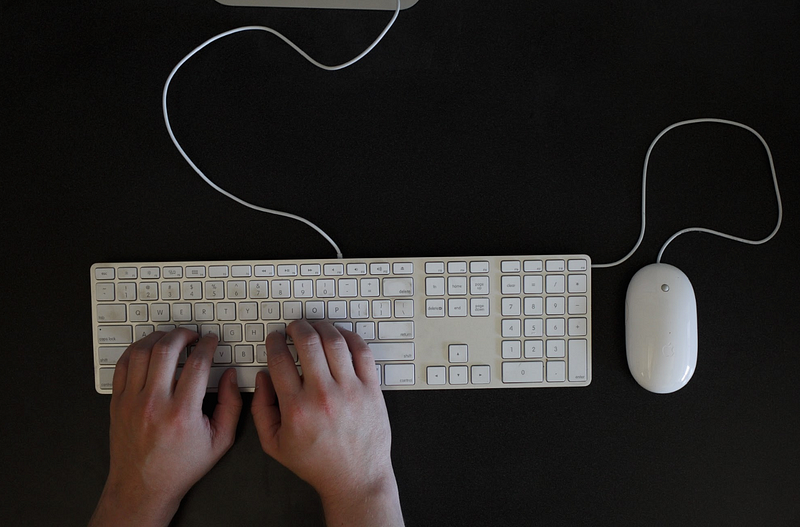Embracing Discomfort
Why we need to move beyond the keyboard to have difficult conversations
Opinion Piece by JOSEPH CALABRO

An old boss once showed me a meme during my first week of work. The meme equated someone named “Mohammed” with a proclivity for terrorism. I gave him a puzzled look as he laughed. I wondered why he would show me this. I wondered why he thought I would find humor in it.
I once worked at a golf course where many of the members said, and did, a lot of questionable things. One day, a white man casually dropped the n-word into a conversation. I was stunned as he used the word once more, then twice more, before walking out of the room. I wondered how he justified that to himself. I wondered if he spoke that way often.
What I didn’t do while I was wondering, was say something. I didn’t ask my boss why he thought I would find his “joke” funny. I didn’t tell the man at the golf course he needed to change his vocabulary.
These were moments of weakness for me. They’re shameful memories I shake my head at, especially because I know what I would’ve done if I had seen these comments online.
If I had seen my old boss’s meme on Facebook, or seen this golfer’s language on Twitter, I would have had a reply. I would have used my four years of political science and journalism education to “destroy,” “eviscerate,” or otherwise be a “savage” in my sanctified response.
But I wasn’t on any of these platforms. I had a real and tangible opportunity to chastise, argue, educate and face-down the very vitriol my Facebook says I’m intolerant of.
I didn’t.
A popular sentiment today is social media gives a platform to the voices of bigotry; it is now a cesspool composed of knee-jerk reactions and a growing network of anonymous race-baiting trolls who are becoming more emboldened by the second.
In a New York Times op-ed published in June 2017, Bret Stephens swore off Twitter for good.
“Bigotry flourishes on Twitter, since it offers the bigot the benefits of anonymity along with instantaneous, uncensored self-publication,” Stephens wrote. “It’s the place where their political minds can be as foul as they want to be — without the expense or reputational risk of showing their face at a Richard Spencer rally.”
Lindy West similarly vowed to never again put up with Twitter’s daily abuse in her own New York Times op-ed published in February 2018.
“The social contract of the internet seems to insist that there’s a nobility in weathering degradation,” West wrote. “You can call me over sensitive, but the truth is I got far better than any human being should be at absorbing astonishing cruelty and feeling nothing.”
The “social contract of the internet” West speaks of isn’t new. We can’t ignore that the internet has been a haven for the gross, the obscene and the violent since its inception.
But it has also been a platform for positive change, social connection and common sense. It has not seen dark days or bright days; it has seen darkness and brightness every day.
The difference now is the courageous seem to only exist on the timeline and we tend to see the ugliness as confined to social media, as it seems Stephens and West do.
This is especially easy when you are a white man, which I am, living in a relatively homogenous community, which I do, and don’t take the brunt of the nastiness. Bigotry in my life is an abstraction; a collection of stories, policies and second-hand accounts that don’t immediately turn my life inside out.
Perhaps this is white male privilege. My gender and skin color keep me from experiencing the everyday difficulties of someone who doesn’t happen to fit that mold.
But not sticking up for a person or an ideal in the real world isn’t privilege. We’re well past that.
It’s cowardice.
In part, we have been neutered by social media; conditioned to think what we post is good enough. If we’re a “good progressive” on the keyboard, nothing else really matters.
Social media has stripped us of an important skill: engaging in face-to-face confrontation.
“How-to” articles for addressing your problematic family members circulate in the lead-up to every Thanksgiving.
We don’t even know how to have honest debates with family. We fear breaks in civility and moments of discomfort more than the real issues that affect fellow humans.
We seem to have forgotten that the aunt or uncle who crosses the line operates outside the dinner table. Their existence is not limited to scooping mashed potatoes, pouring gravy and casually making transphobic remarks. They also raise kids, ride buses, consume television, vote in elections, hire employees and go golfing. Bigotry does not end when the turkey is a pile of bones, just as it does not end when we log out of Twitter.
Real people say and do awful things, whether they mean it or not. They always have and always will. Social media allows them to yell these things through a digital megaphone and it allows us to yell right back. And we should. We shouldn’t stop calling out evil or uninformed people online. We just need to have the will to do it face-to-face, as well.
Be angry when your friend uses a hurtful phrase. Tell the person on the bus why they’re in the wrong. Don’t placate them with a laugh. Don’t look the other way and pretend you didn’t hear. Embrace discomfort.
More of us need to endure the uncomfortable so the marginalized don’t have to deal with the horrifying. My courage used to only exist on the timeline, but I’m working on it.
